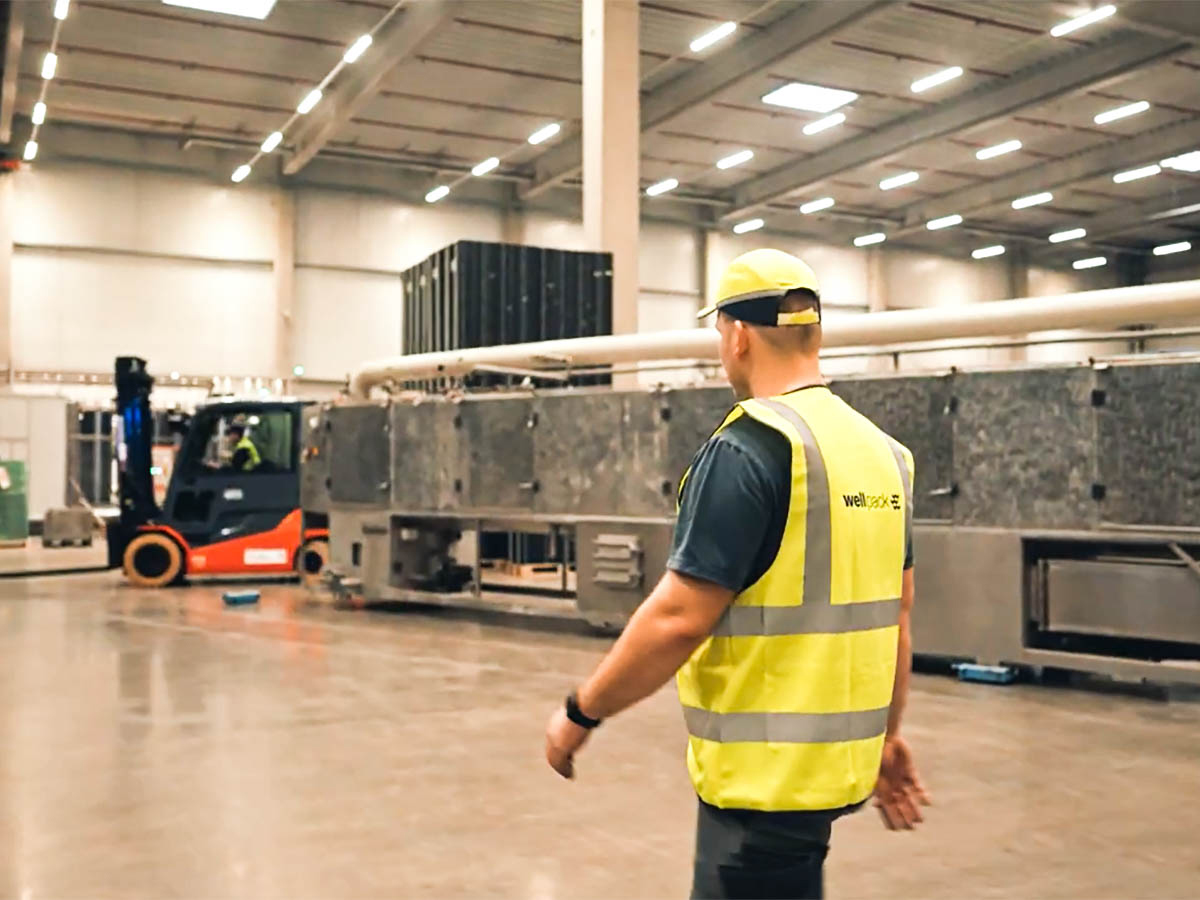

Your Guide to Logistics Careers in Europe: Salaries, Skills, and Opportunities
The logistics industry is the backbone of global trade and commerce, offering diverse career opportunities across various positions. From entry-level logistics jobs to senior management roles, this dynamic field attracts professionals with a range of skills and qualifications. Here, we delve into the exciting aspects of working in logistics, provide tips on finding a job, and share insights on passing interviews and advancing your career.

Why Choose a Career in Logistics?
A career in logistics is ideal for individuals who enjoy solving complex problems, organizing systems, and ensuring efficient operations. Logistics professionals are responsible for managing the flow of goods and services across supply chains. Key areas include supply chain management, warehouse management, and freight and distribution.
Roles in the logistics industry range from truck driver jobs and warehouse staff to planners and logistics manager jobs. The field offers both stability and growth potential, with a constant demand for skilled professionals.
Logistics Manager Salaries
| Country | Average Annual Salary (EUR) |
| Germany | €55,000 – €75,000 |
| Netherlands | €50,000 – €70,000 |
| Czech Republic | €30,000 – €40,000 |
| Poland | €25,000 – €35,000 |
| United Kingdom | €45,000 – €65,000 |

How to Find Logistics Jobs
- Online Platforms:
Job search websites like LinkedIn, Indeed, and Glassdoor are excellent resources for finding logistics positions. Use keywords such as “logistics careers” and “logistics manager jobs” to filter results. - Networking:
Attend industry events and connect with professionals in the transportation industry to discover new opportunities. - Company Websites:
Many logistics companies post vacancies directly on their websites. - Recruitment Agencies:
Agencies specializing in supply chain management roles can help match your skills with the right position.
How to Succeed in a Logistics Job Interview
- Research the Company:
Understand the company’s role in the transportation industry and their supply chain processes. - Highlight Relevant Skills:
Showcase supply chain skills, such as problem-solving, organization, and communication. - Prepare for Scenarios:
Be ready to discuss past experiences solving logistical problems or improving processes. - Certifications Matter:
Mention any logistics training/certification to demonstrate your qualifications.

Documents Needed for Logistics Vacancies
| Document | Purpose |
| Resume/CV | Highlights skills and experience |
| Educational Certificates | Verifies logistics qualifications |
| Identification (e.g., passport) | Required for employment |
| Work Permits (if applicable) | For international positions |
| Certifications (e.g., SCM, PMP) | Shows specialized training |
| References | Validates work history |

General Trends Across Europe (Relevant to all listed countries):
- E-commerce boom: Continued growth in online shopping drives demand for warehousing, fulfillment, and last-mile delivery.
- Automation & Technology: Roles involving automation, data analysis, and tech integration within logistics are increasing.
- Sustainability focus: Jobs related to green logistics, supply chain sustainability, and reverse logistics are becoming more prevalent.
- Driver shortage (ongoing): The need for qualified truck drivers, especially for long-haul and specialized transport, persists.
Country-Specific Insights: In-Demand Roles:
Germany:
- Logistics Managers: Experienced professionals to oversee complex supply chains and optimize processes.
- Warehouse Workers: Especially those skilled in operating automated systems and using warehouse management software (WMS).
- Truck Drivers (Kraftfahrer): Demand remains high, particularly for CE license holders.
- Supply Chain Specialists: Experts in planning, forecasting, and optimizing supply chains.
- E-commerce Fulfillment Specialists: Managing the logistics of online orders, returns, and customer service.
Czech Republic:
- Warehouse Operatives: A consistent need for workers in distribution centers and logistics parks.
- Truck Drivers (Řidiči): Similar to Germany, a shortage of qualified drivers.
- Logistics Coordinators: Managing transportation and coordinating deliveries.
- Production Planners: Integrating logistics with manufacturing processes.
Austria:
- Logistics Specialists: Focus on international trade and transportation.
- Warehouse Logistics Managers: Overseeing warehouse operations and staff.
- Truck Drivers (LKW-Fahrer): Especially those with specialized transport skills.

Great Britain:
- HGV Drivers (Heavy Goods Vehicle Drivers): A well-documented driver shortage.
- Logistics Coordinators: Managing the flow of goods and information.
- Warehouse Managers: Optimizing warehouse operations and efficiency.
- Supply Chain Analysts: Using data to improve supply chain performance.
- Last-Mile Delivery Drivers: Meeting the demands of e-commerce.
Romania:
- Warehouse Workers: Growing logistics sector creates demand for warehouse staff.
- Truck Drivers: Both domestic and international transport.
- Logistics Assistants: Supporting logistics operations and administration.
Poland:
- Warehouse Workers: Similar to other Central European countries.
- Truck Drivers (Kierowcy): A significant need for drivers.
- Logistics Specialists: Coordinating transport and supply chain activities.
Hungary:
- Warehouse Operatives: Demand driven by manufacturing and logistics hubs.
- Truck Drivers (Sofőrök): National and international transport roles.
- Logistics Coordinators: Managing deliveries and transportation.
Greece:
- Logistics Coordinators: Managing transportation and distribution, especially in tourism-related sectors.
- Warehouse Personnel: Working in ports and distribution centers.
France:
- Logistics Operators: Handling warehouse tasks and order fulfillment.
- Truck Drivers (Chauffeurs): A consistent need for qualified drivers.
- Supply Chain Managers: Optimizing complex supply chains.
Spain:
- Warehouse Workers: Supporting the growing e-commerce sector.
- Truck Drivers (Camioneros): National and international transport roles.
- Logistics Coordinators: Managing transportation and deliveries.
Interesting Aspects of Logistics Careers
- Diverse Roles:
Logistics careers span various sectors such as manufacturing, e-commerce, and retail. Positions include warehouse operators, transportation coordinators, logistics managers, and procurement specialists. - Problem-Solving Challenges:
Logistics professionals solve real-world challenges, such as optimizing delivery routes, reducing costs, and managing inventory. - Global Opportunities:
With logistics integral to international trade, professionals have opportunities to work globally. - Career Advancement:
From entry-level logistics jobs, professionals can climb the ladder to senior positions with the right logistics qualifications and supply chain skills.

The Path to Success in Logistics
Success in logistics depends on gaining relevant experience, obtaining logistics training/certification, and continuously improving your supply chain skills. Entry-level roles like warehouse operators or truck driver jobs provide a strong foundation, while managerial positions offer opportunities for growth and high logistics salary expectations.
If you’re ready to embark on a career in this thriving industry, leverage your skills, seek career advancement in logistics, and build a future in one of the most critical sectors of the global economy.